The full scale of Russian atrocities in Bucha, known as the Bucha massacre, surfaced only after its liberation on March 31, 2022—bodies in the streets, mass graves, homes reduced to rubble. But this isn’t just a story of devastation. On one street, residents have been reclaiming their town step by step—burying their dead and rebuilding their lives.
During 33 days of occupation, Russian forces turned Bucha—a quiet commuter town near Kyiv—into a killing ground. The Bucha massacre unfolded behind St. Andrew’s Church, where a mass grave held at least 116 civilians. Across the town, 458 bodies were recovered—many showing signs of execution, torture, or blunt force trauma. The Russian massacre left Bucha scarred, its streets littered with evidence of Russian war crimes.
By May, on Yablunska Street—where mass executions and heavy fighting took place—residents faced the grim task of rebuilding. The destruction was everywhere, but so was the will to restore what was lost. Gardens were tended, shattered homes patched up, and life, however fragile, pushed forward. These photos capture the haunting traces of war and the quiet resilience of those left behind.
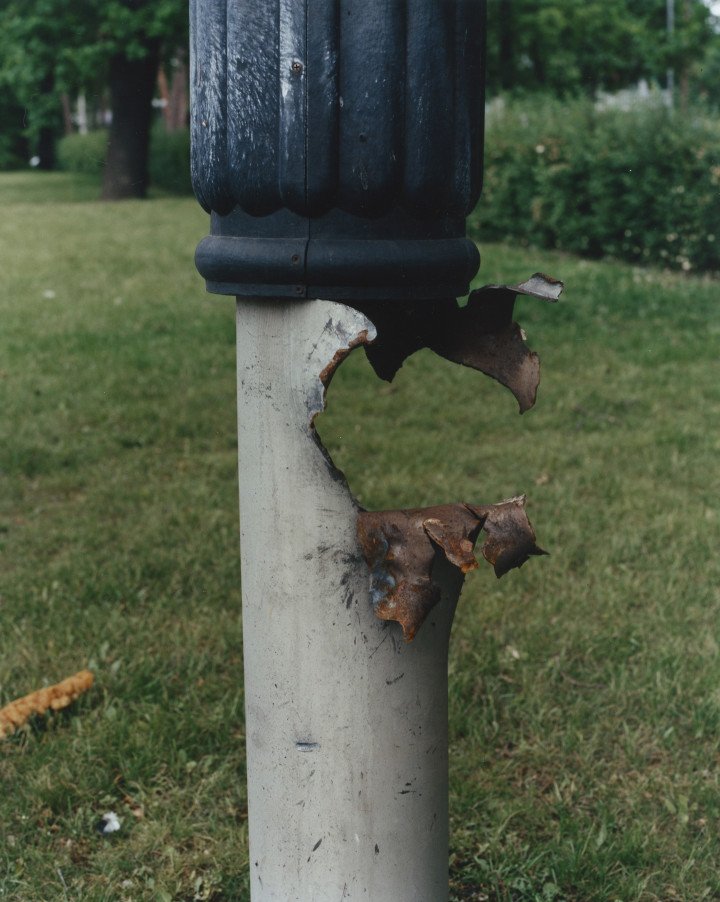
Walking down Yablunska Street felt like stepping into the aftermath of a nightmare—the kind of weight that presses into your chest, heavy with the echoes of unspeakable atrocities.
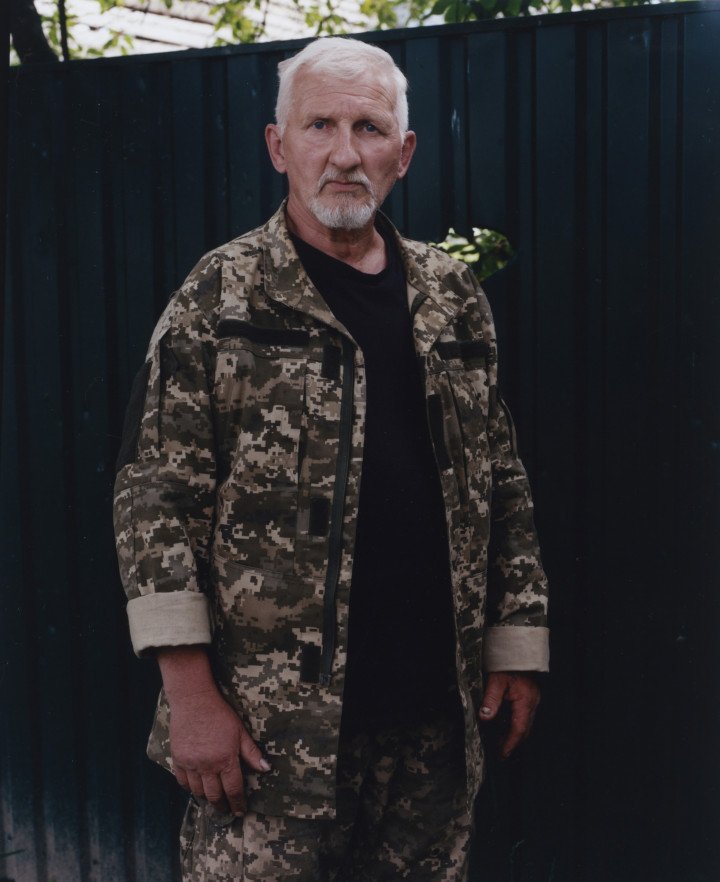
A camera crew filmed an elderly man in military fatigues. When I asked to take his portrait, he nodded and told me—he defended Yablunska Street. With a steady voice he recounted how he took down two Russian tanks.
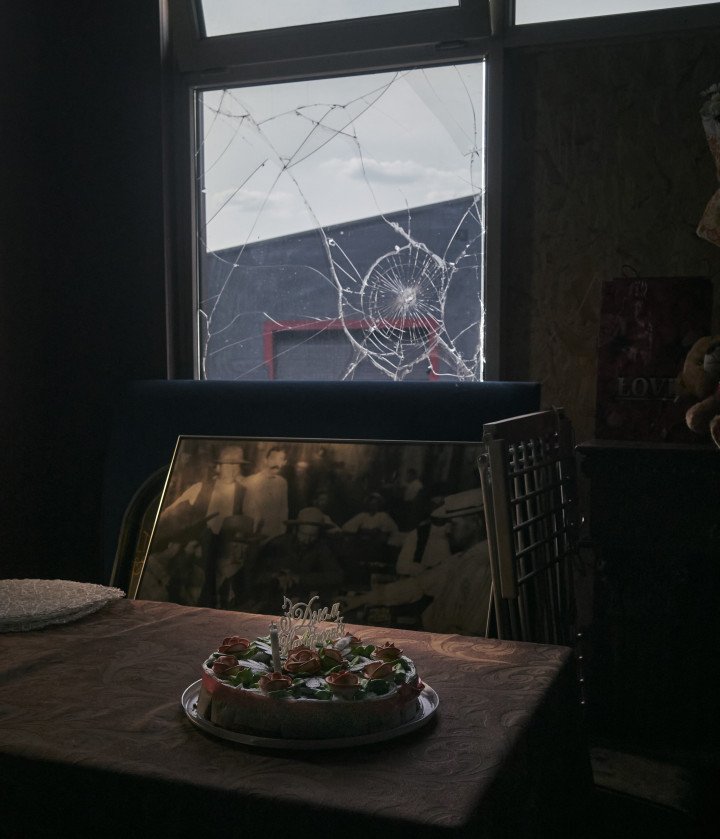
At a roadside restaurant, barely standing, bullet holes scarred the walls—even the television hadn’t been spared. And yet, life carried on. Outside, a woman tended a barbecue, the scent of smoke and grilled meat curling into the ruins. From the kitchen, a freshly baked birthday cake appeared, carefully set in front of a shattered window. The woman laughed, shaking her head—because what else was there to do but keep going?
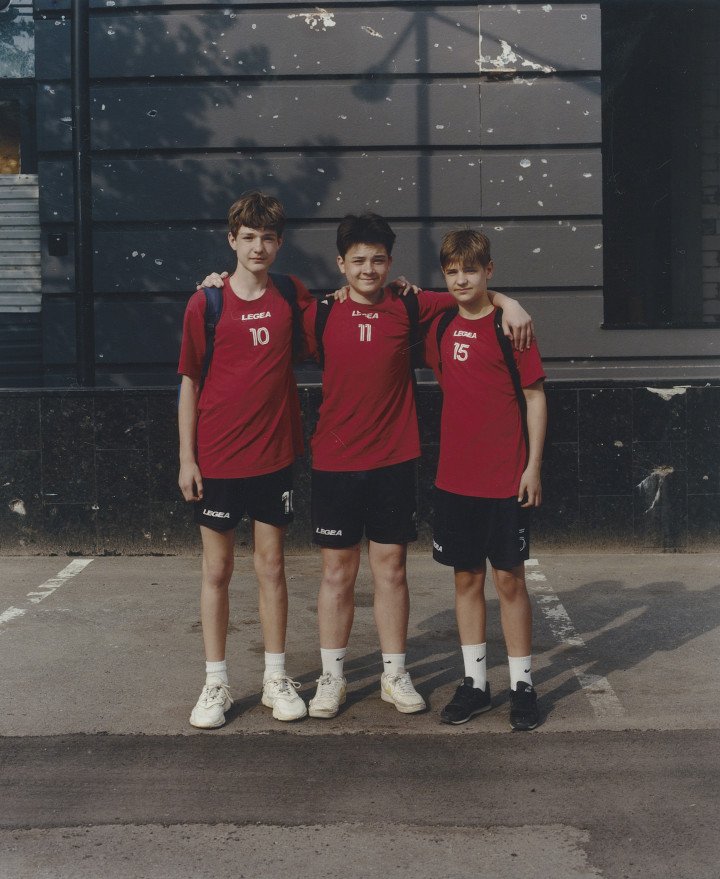
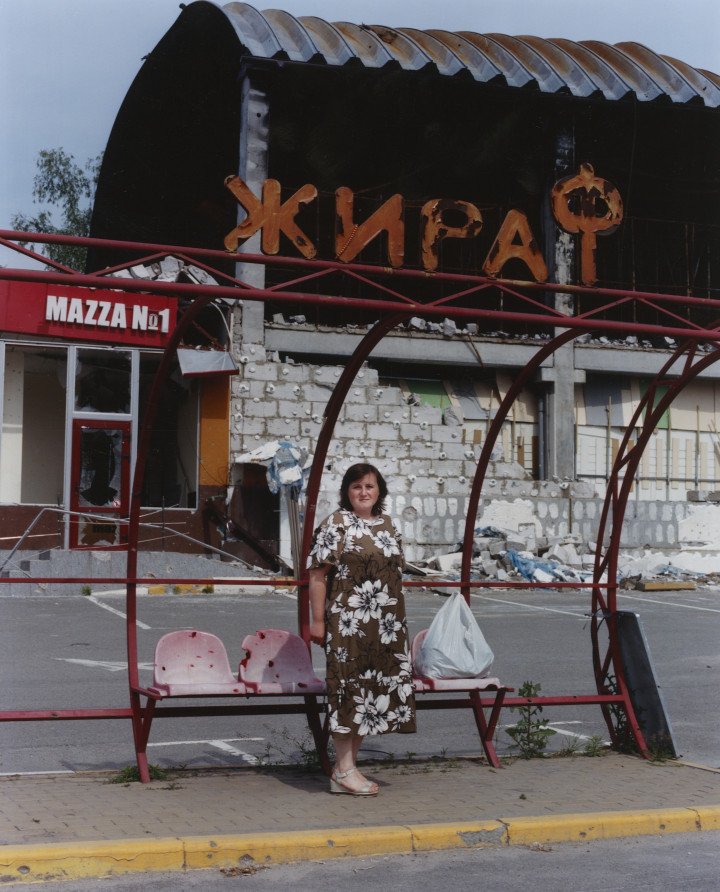
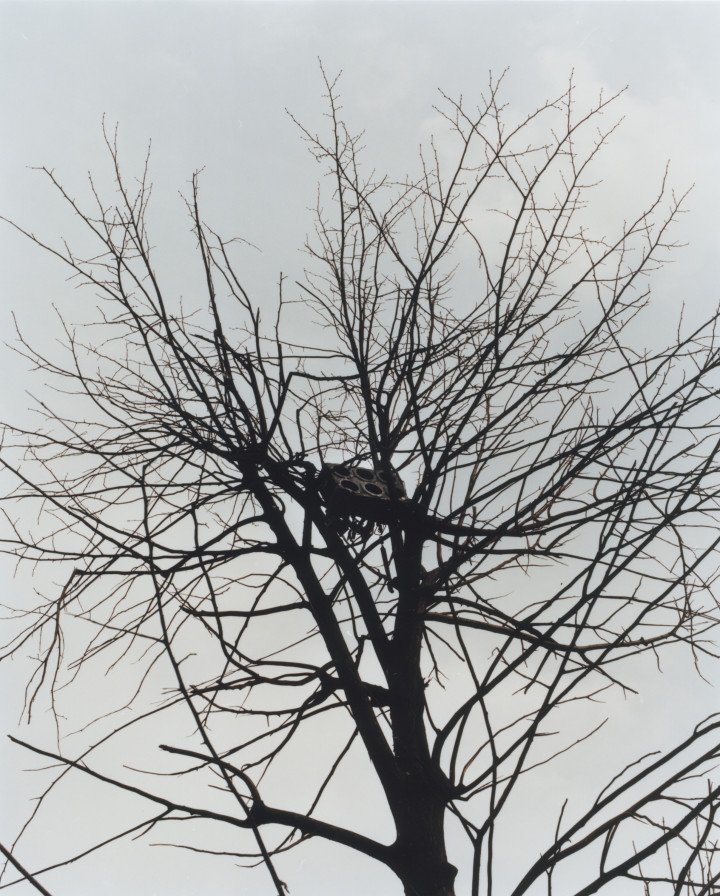
The contrast in Bucha was staggering—lush greenery flourishing beside overwhelming destruction. Bright grass stretched defiantly, brushing up against freshly ruined homes and shattered infrastructure.
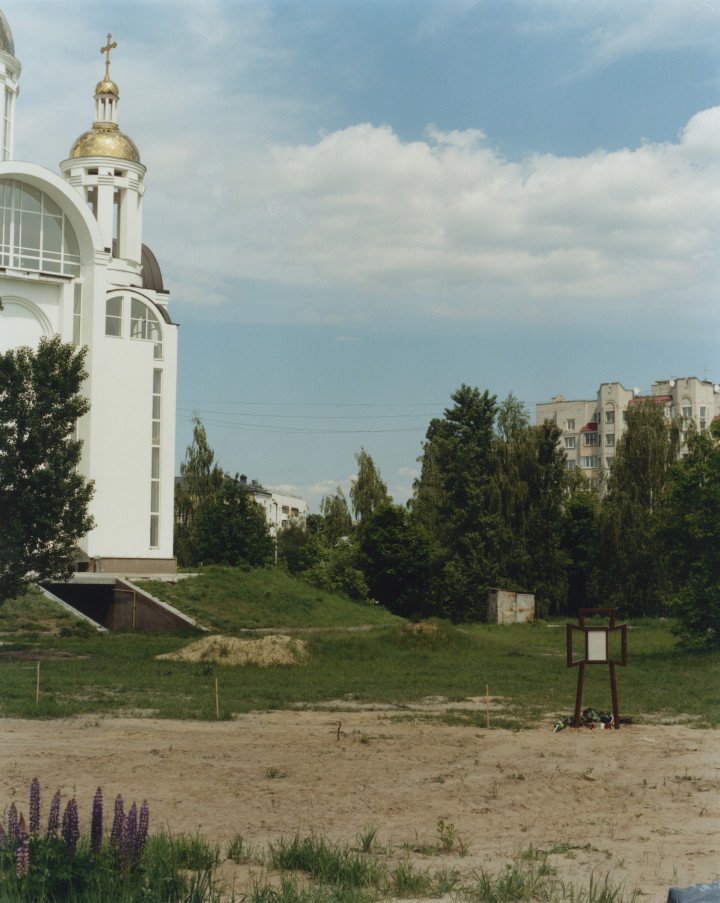
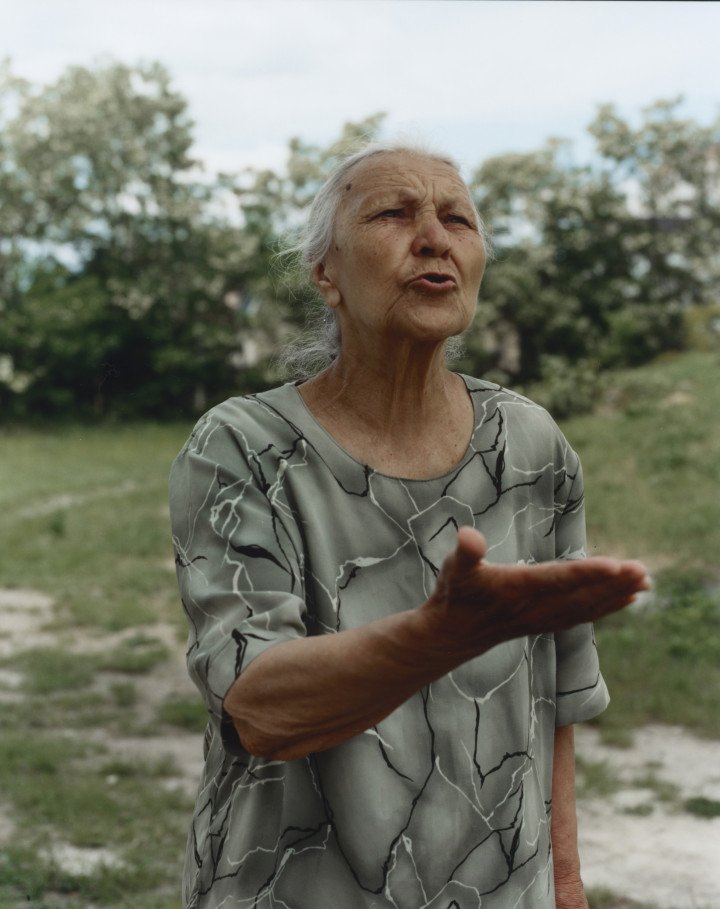
At St. Andrew’s Church, an woman stood among the mourners. Before the invasion, she was a nurse. During the Russian occupation, she set up a makeshift kitchen in front of her home, cooking for neighbors despite the danger. Her family begged her to leave. She refused.
“I am 86. This is my home. I am not afraid of the Russians.”
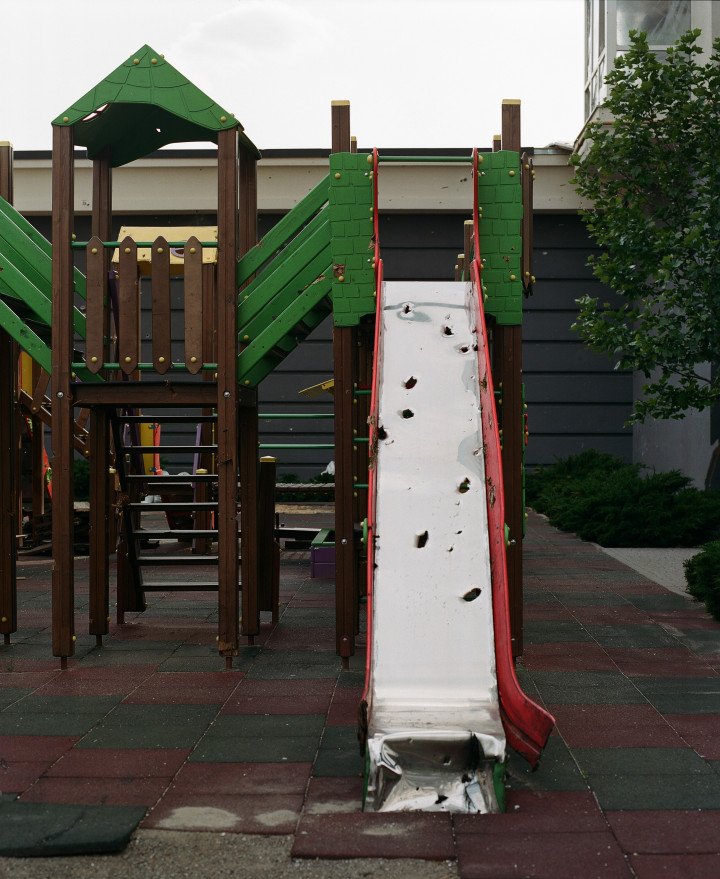
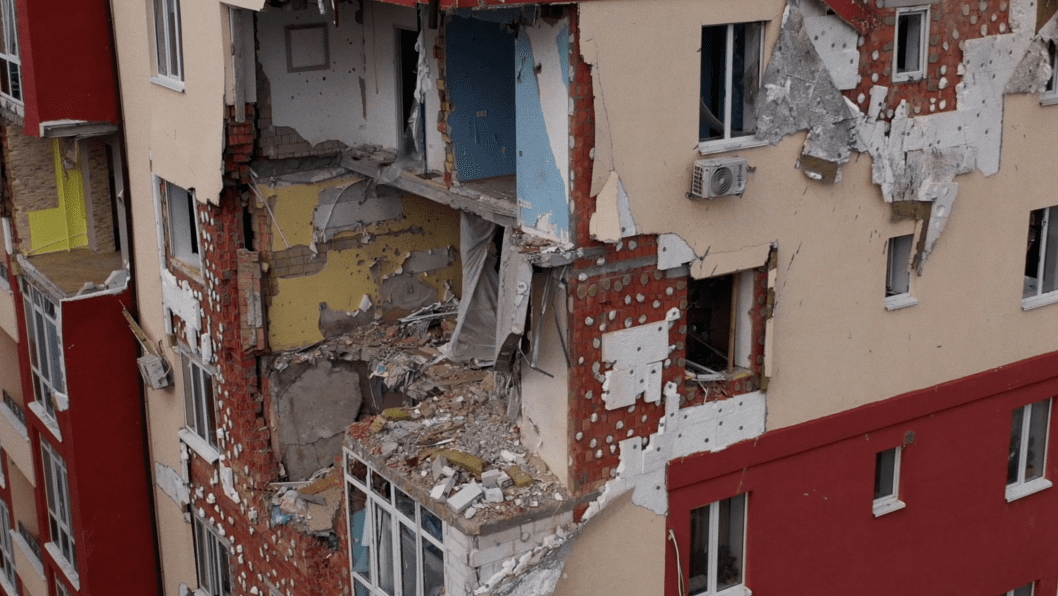
-0666d38c3abb51dc66be9ab82b971e20.jpg)


-6ead6a9dd508115a5d69759e48e3cad1.jpg)
-29a1a43aba23f9bb779a1ac8b98d2121.jpeg)
-7f50738271c122a9b5e663cb80703dd6.jpg)

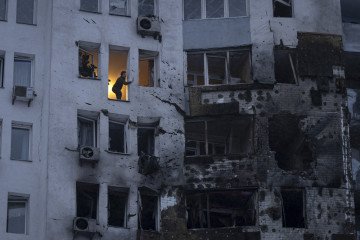
-554f0711f15a880af68b2550a739eee4.jpg)